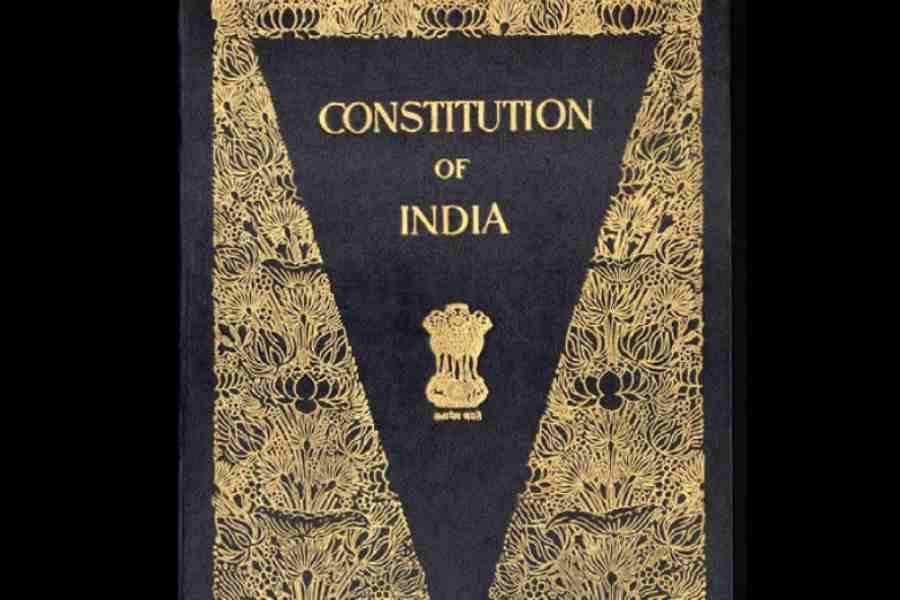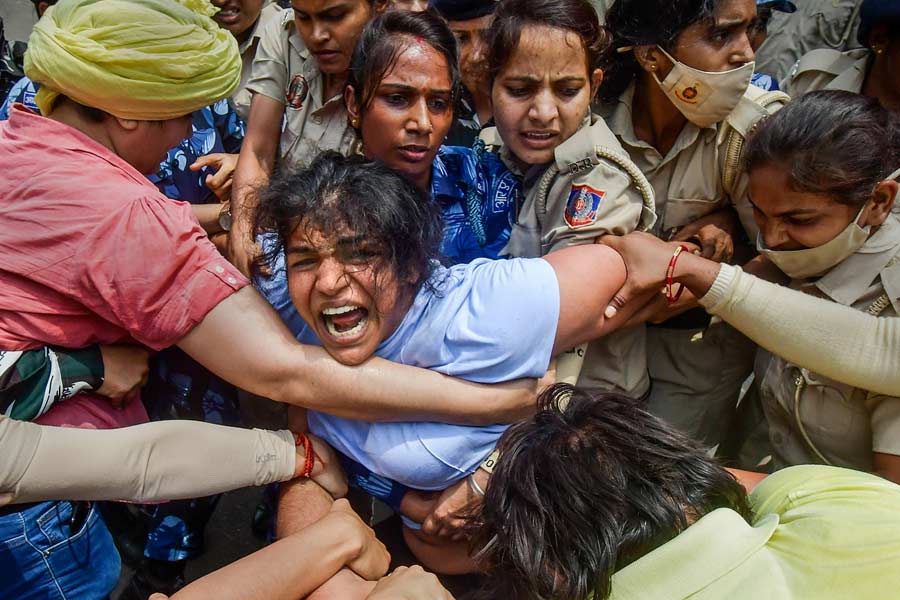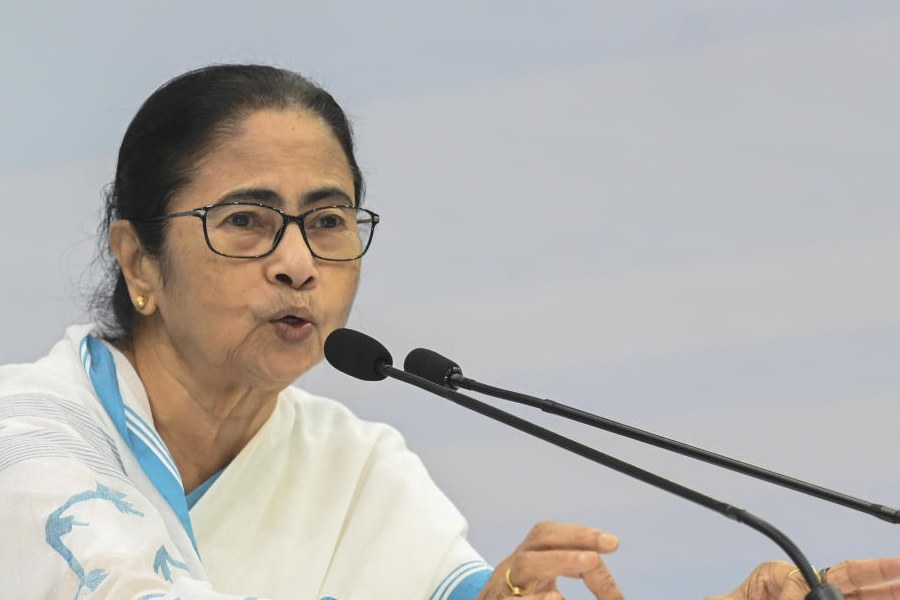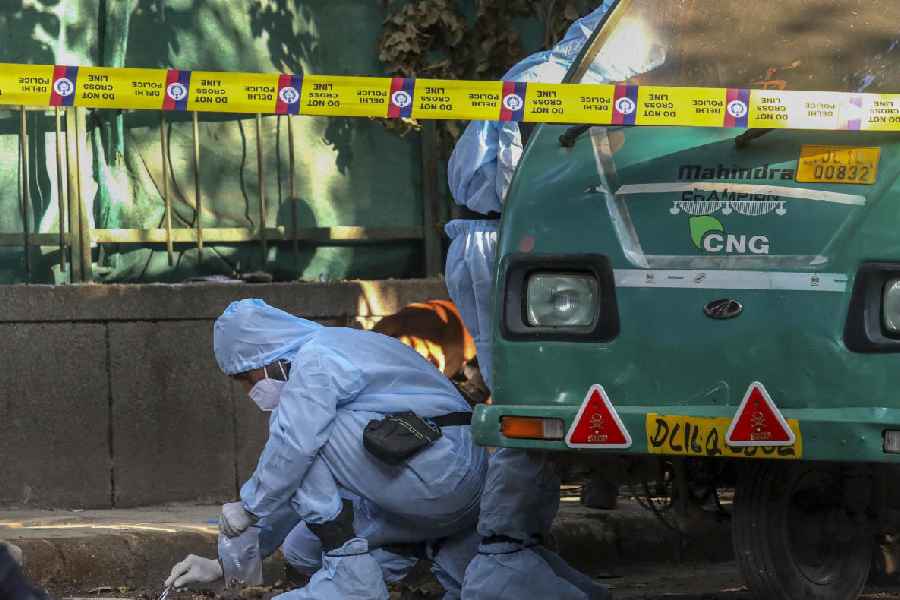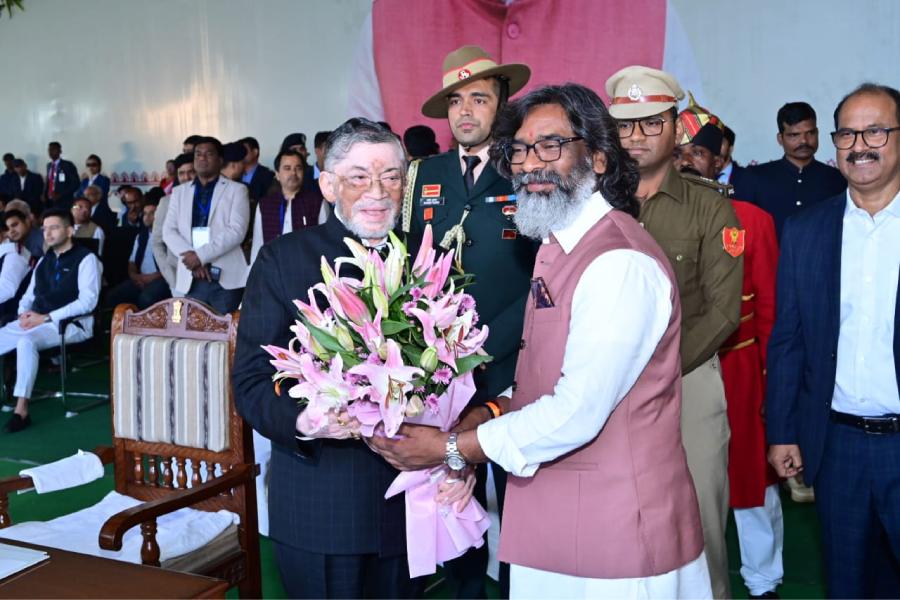Karnataka social welfare minister H.C. Mahadevappa has set in motion a process to make a daily reading of the Preamble to the Constitution mandatory at all schools, colleges and universities in the state, including professional colleges.
An aide to the minister told The Telegraph that the initiative was part of the new Congress government’s efforts to “undo the damage done by Sangh parivar organisations, which have spread hate among a section of the people”. He said the official order would be routed through the education ministry.
Mahadevappa issued the directive at a meeting with senior officials of his department on Friday, where he got them to read out the Preamble as a sort of oath.
“Instructions have been issued to make it mandatory for all educational institutions in the state to read the Preamble to the Constitution and (understand) its interpretation,” Mahadevappa tweeted in Kannada.
In another tweet on Friday, he said: “The work of the department was launched by reading the Preamble to the Constitution.”
The aide told this newspaper on Saturday that the minister’s objective was to ensure that students in the state “learn to respect each other irrespective of all man-made differences”.
The Preamble describes India as a “sovereign, socialist, secular, democratic republic” that aims to “secure to all its citizens Justice, social, economic and political/ Liberty of thought, expression, belief, faith and worship/ Equality of status and of opportunity; and to promote among them all Fraternity, assuring the dignity of the individual and the unity and integrity of the nation”.
“I welcome this move (on daily Preamble reading) and I’m sure that every right-thinking person would have the same opinion,” D. Shashi Kumar, general secretary of the Associated Managements of English Medium Schools in Karnataka, which represents some 17,000 private schools, told this newspaper.
Kumar added: “It’s high time we did something to teach our students and youth about the Preamble and its importance to our secular democratic nation.”
Senior lawyer G.R. Mohan echoed him. “It’s very important for children, and even their parents, to understand the essence of our Constitution. At least, it should help them understand why communal harmony and mutual respect are key to larger peace in society at a time when moral policing and hate crimes are increasingly being reported,” he said.
Kumar cited how schools had acted promptly when Karnataka High Court made an observation in November 2016 emphasising the State’s responsibility to spread awareness about Article 51A of the Constitution, which lists the fundamental duties of citizens.
Mohan had appeared in the case, filed by the school body headed by Kumar, which had sought stricter regulation of television content.
“Since that high court observation, most schools, including mine, have displayed the contents of Article 51A on their premises. I feel the Preamble would be a great addition to that,” Kumar said.
The Karnataka government is already working on “de-saffronising” the school textbooks that the previous BJP government had got rewritten, and which have already been distributed among the schools, without disturbing the students.
Chief minister Siddaramaiah had last week promised at a meeting with 40-odd Kannada writers and scholars that the government would clean up the textbooks to ensure that the minds of the young are not polluted.
A textbook revision committee, headed by writer Rohith Chakrathirtha, had in 2022 triggered a controversy over the omission or dilution of chapters relating to social reformer Sree Narayana Guru, Tipu Sultan, Bhagat Singh and progressive writers such as Sara Abubaker, P. Lankesh (slain journalist Gauri Lankesh’s father) and A.N. Murthy Rao.
The committee had introduced chapters on RSS founder K.B. Hedgewar and the works of RSS ideologues Chakravarthi Sulibele, Govinda Pai and Bannanje Govindacharya.
Then chief minister Basavaraj Bommai was forced to dissolve the committee under pressure from progressive and secular forums and writers. But the changes to the textbooks had already been made.

